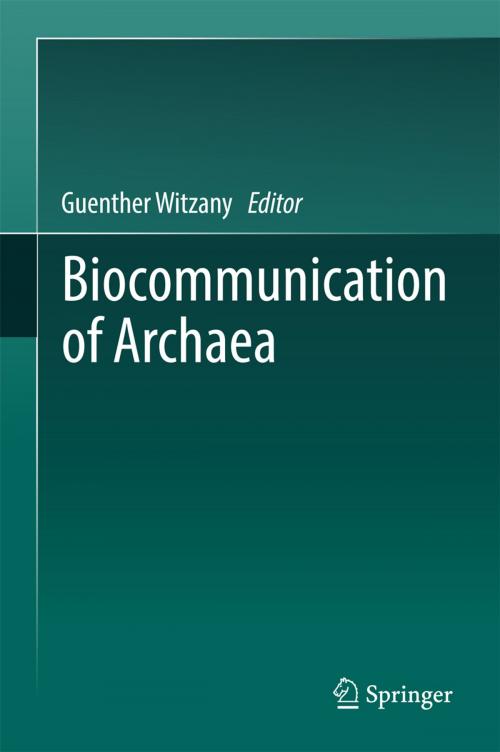Biocommunication of Archaea
Nonfiction, Science & Nature, Science, Biological Sciences, Microbiology, Zoology| Author: | ISBN: | 9783319655369 | |
| Publisher: | Springer International Publishing | Publication: | September 27, 2017 |
| Imprint: | Springer | Language: | English |
| Author: | |
| ISBN: | 9783319655369 |
| Publisher: | Springer International Publishing |
| Publication: | September 27, 2017 |
| Imprint: | Springer |
| Language: | English |
Archaea represent a third domain of life with unique properties not found in the other domains. Archaea actively compete for environmental resources. They perceive themselves and can distinguish between ‘self’ and ‘non-self’. They process and evaluate available information and then modify their behaviour accordingly. They assess their surroundings, estimate how much energy they need for particular goals, and then realize the optimum variant. These highly diverse competences show us that this is possible owing to sign(aling)-
mediated communication processes within archaeal cells (intra-organismic), between the same, related and different archaeal species (interorganismic), and between archaea and nonarchaeal organisms (transorganismic). This is crucial in coordinating growth and development, shape and dynamics. Such communication must function both on the local level and between widely separated colony parts. This allows archaea to coordinate appropriate response behaviors in a differentiated manner to their current developmental status and physiological influences. This book will orientate further investigations on how archaeal ecosphere inhabitants communicate with each other to coordinate their behavioral patterns and whats the role of viruses in this highly dynamic interactional networks.
Archaea represent a third domain of life with unique properties not found in the other domains. Archaea actively compete for environmental resources. They perceive themselves and can distinguish between ‘self’ and ‘non-self’. They process and evaluate available information and then modify their behaviour accordingly. They assess their surroundings, estimate how much energy they need for particular goals, and then realize the optimum variant. These highly diverse competences show us that this is possible owing to sign(aling)-
mediated communication processes within archaeal cells (intra-organismic), between the same, related and different archaeal species (interorganismic), and between archaea and nonarchaeal organisms (transorganismic). This is crucial in coordinating growth and development, shape and dynamics. Such communication must function both on the local level and between widely separated colony parts. This allows archaea to coordinate appropriate response behaviors in a differentiated manner to their current developmental status and physiological influences. This book will orientate further investigations on how archaeal ecosphere inhabitants communicate with each other to coordinate their behavioral patterns and whats the role of viruses in this highly dynamic interactional networks.















